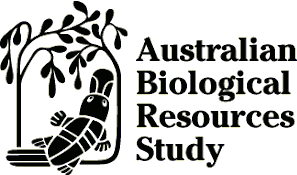Australian Tropical Rainforest Plants - Online edition
Sersalisia obpyriformis (F.M.Bailey) Jessup
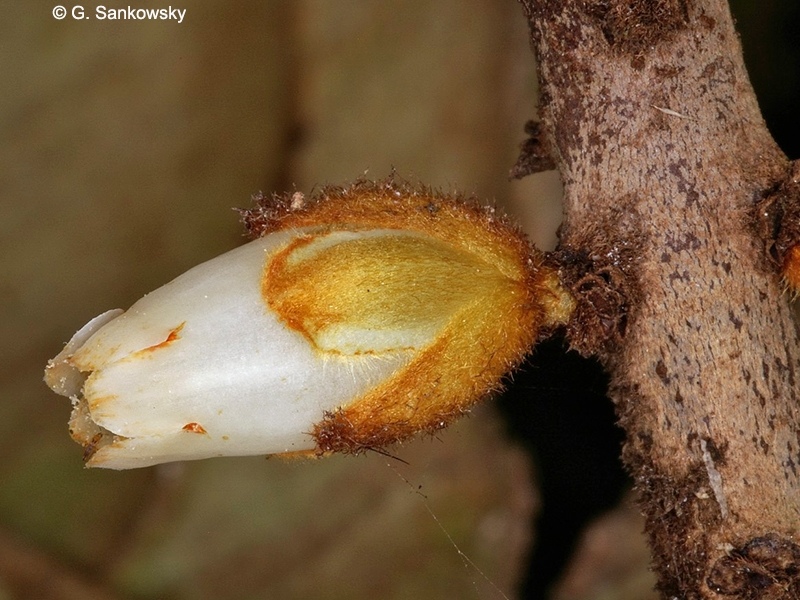
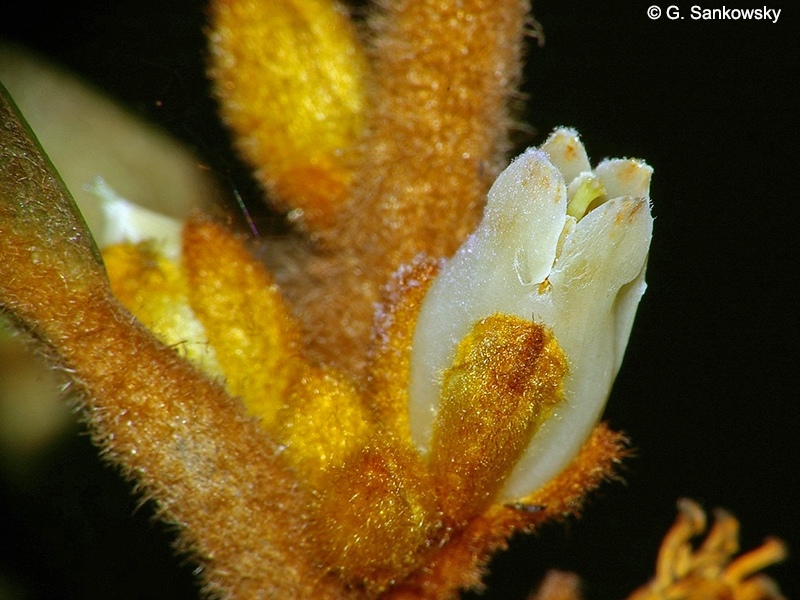
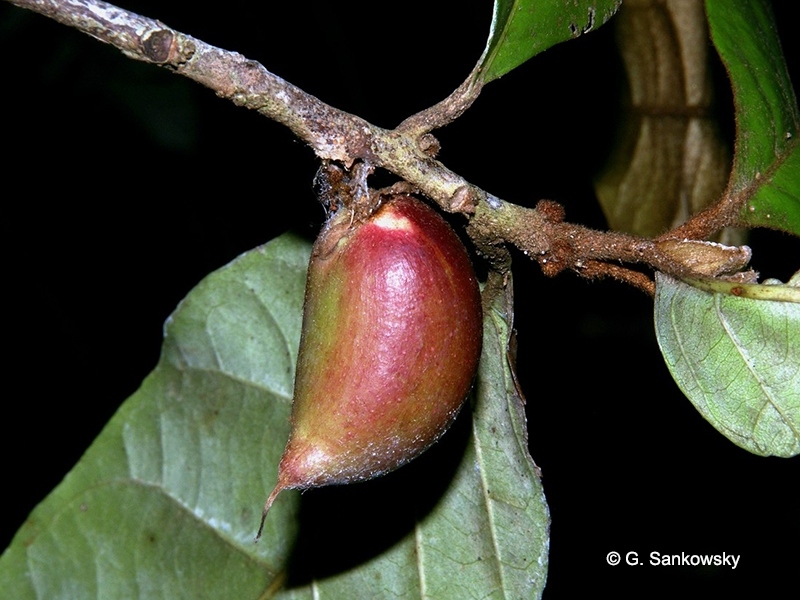
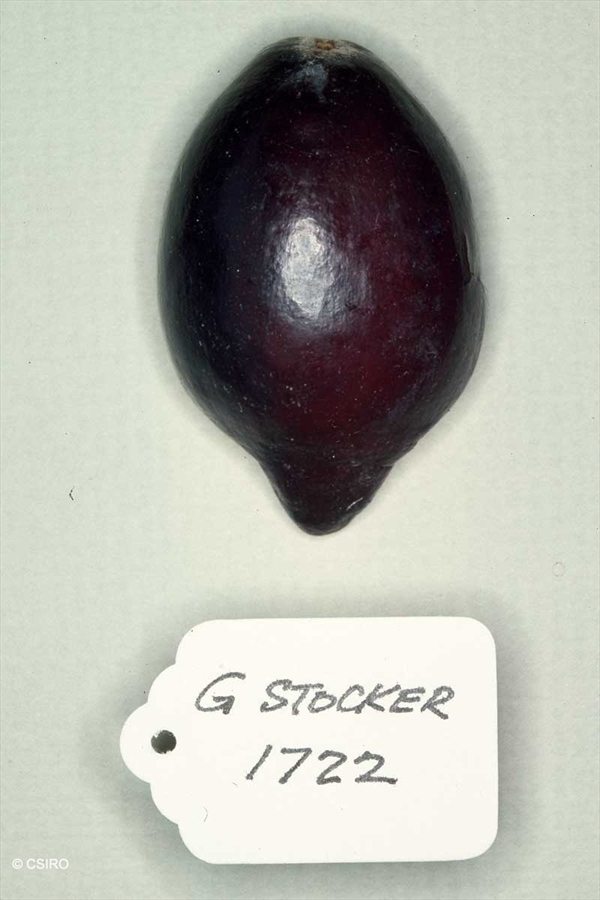
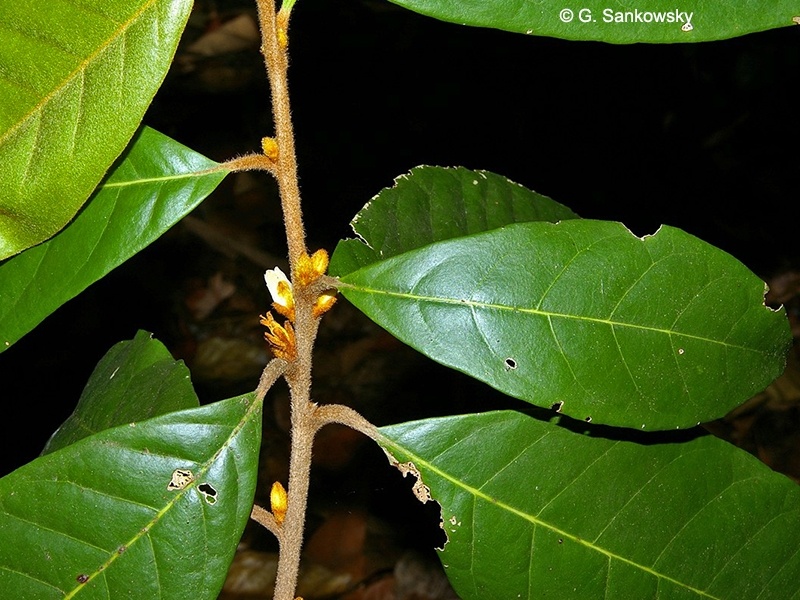
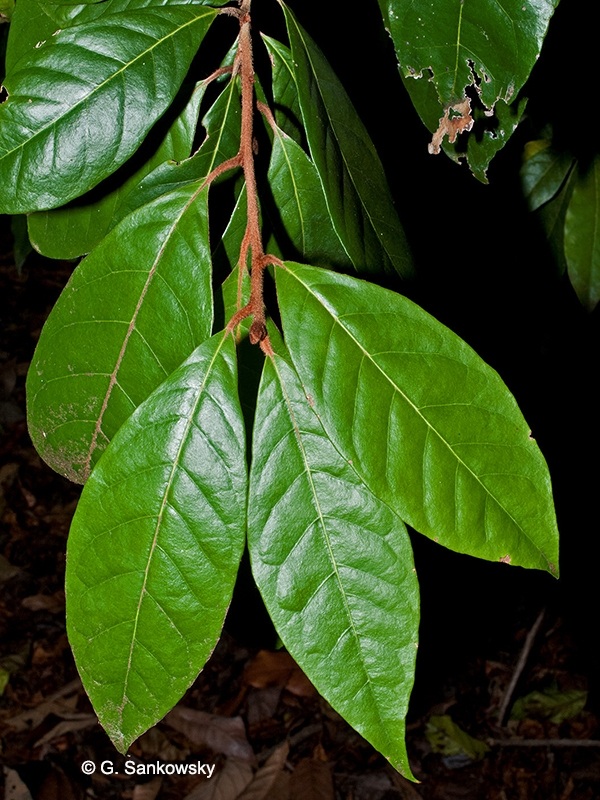
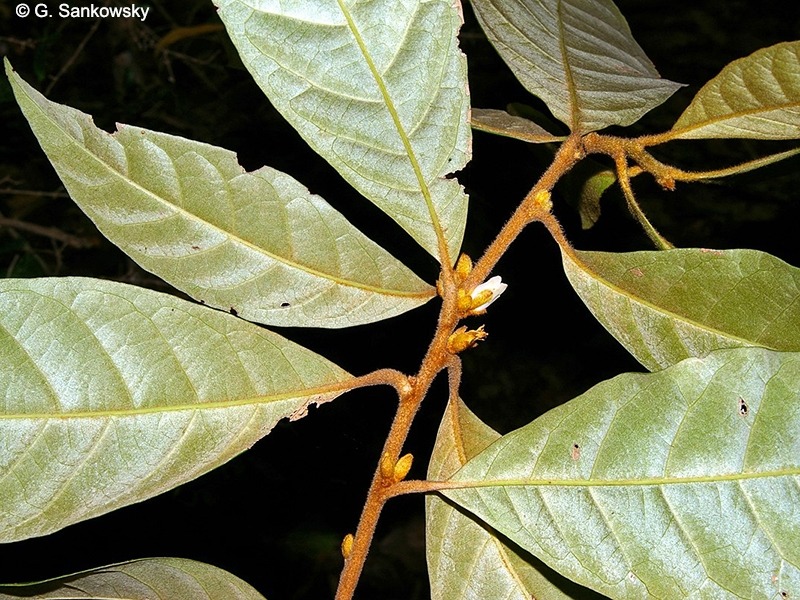
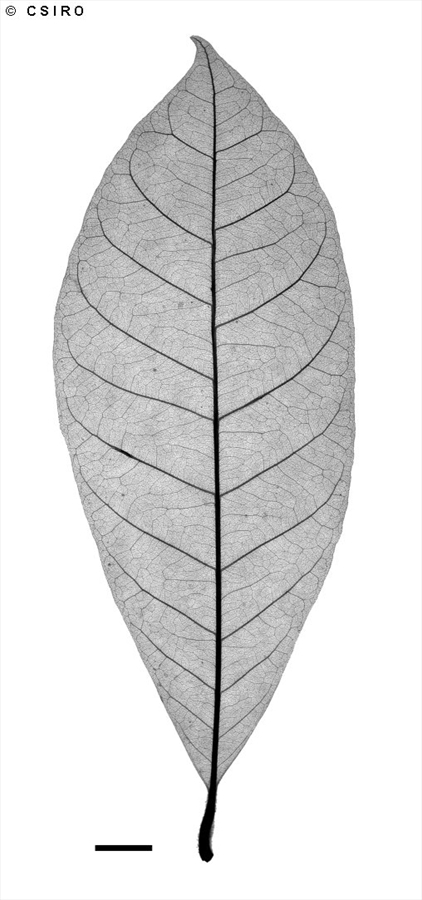
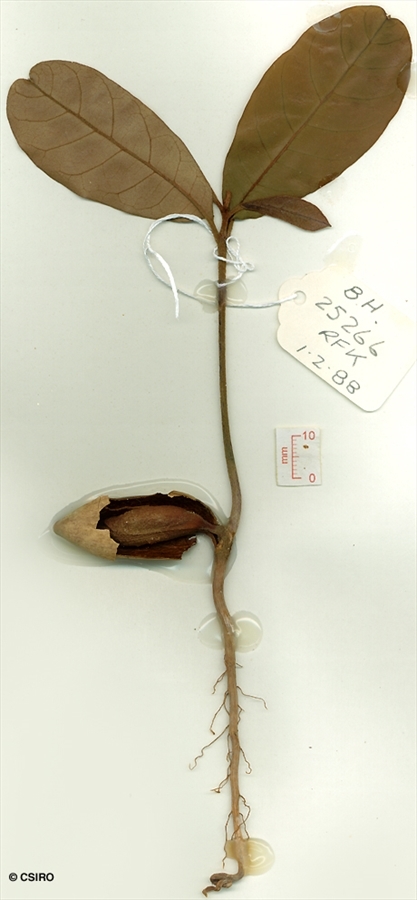
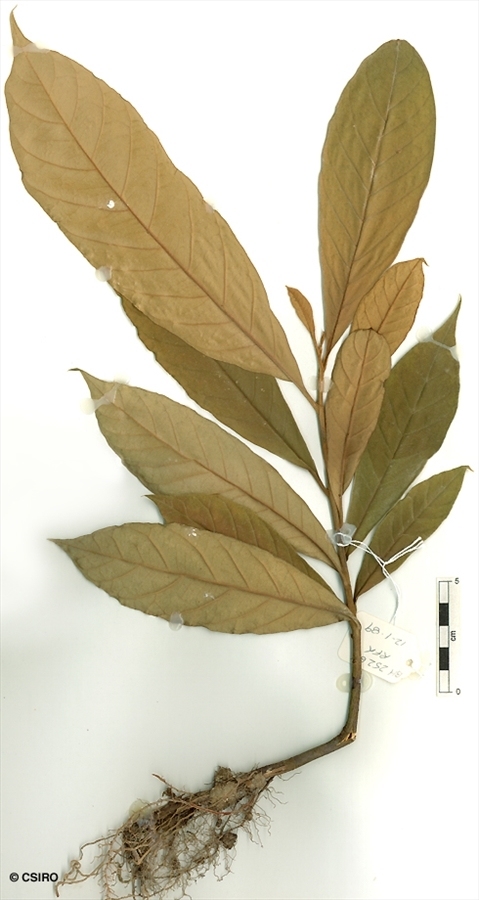
Jessup, L.W. (2019) Austrobaileya 10(3): 366-368. Type: "Queensland. COOK DISTRICT: 'Meston’s Bellenden-Ker Expedition, 1904' (holo: BRI [material lost or destroyed]); State Forest Reserve 755 Palmerston, Brewer Logging Area, Dec 1987, B.P. Hyland 25266RFK (neo: BRI)."
Petioles and twigs produce a milky exudate. Petiole 8-15 mm long; lamina oblanceolate, obovate or elliptic, 4-10(-20) cm long, 2-5(-8.5) cm wide, apex bluntly acuminate or obtuse, reddish brown felted on both surfaces when young, becoming glabrous above and leaving a persistent closely appressed hyaline indumentum below; secondary veins 7(-11) pairs, tertiary veins mostly oblique, the higher order veins areolate.
Pedicels up to 1 mm long, reddish brown tomentose or felted. Calyx lobes 5, oblong or narrowly ovate, 8.5-10 mm long, on outside densely tomentose or felted, on inside sericeous, margins fimbriate. Corolla 9-11 mm long, lobes broadly ovate, 2.3-2.5 mm long, apical margin glabrous or with a few minute trichomes. Stamens c. 2 mm long, anthers c. 1.5 mm long, filaments 0.3-0.5mm long. Staminodes oblong or narrowly deltoid, 2-2.5 mm long, glabrous. Ovary broadly ovoid, sericeous, c. 1.5 mm long; style narrowly conical, 7.5-8.5 mm long, sericeous, glabrous on distal one-third.
Two cataphylls produced before the first true leaves. First pair of true leaves elliptic to broadly obovate, apex acuminate to apiculate, base cuneate to attenuate, margins entire. Leaf blades about 9-10 x 3.4-3.5 cm. Petioles about 0.5 cm long. Underside densely clothed in pale brown prostrate hairs. At the tenth leaf stage: leaf blade elliptic to obovate, apex acuminate, base attenuate, cuneate or rounded, hairy on the upper surface along the midrib, undersurface brown from dense, prostrate, medifixed (T-shaped) hairs, about 10-12 lateral veins each side of the midrib; petiole, stem and terminal bud densely clothed in pale brown, mainly prostrate hairs. Seed germination time 36 to 58 days.
Endemic to NEQ, known from the Wooroonooran National Park area. Altitudinal range from 100-200 m. Grows as an understory tree in well developed lowland rain forest.
Lucuma obpyriformis F.M.Bailey, Queensland Agricultural Journal 15(1) (1904): 493. Type: "Meston's Bellenden-Ker Expedition, 1904." Pouteria obpyriformis (F.M.Bailey) Baehni, Candollea 9 (1942): 412. Pouteria sp. Barong (M. Tucker 22) [Provisional Phrase Name].




